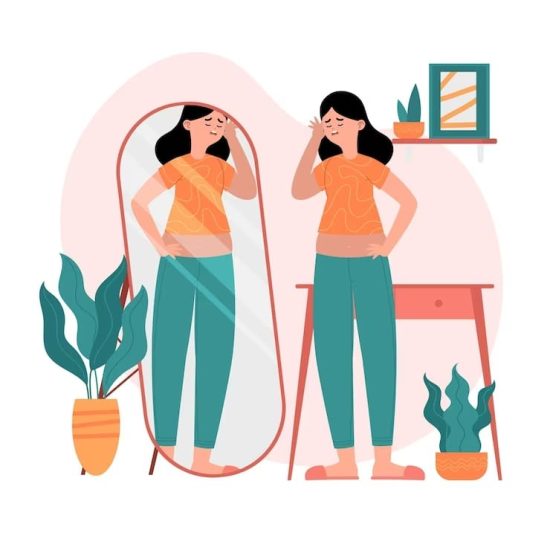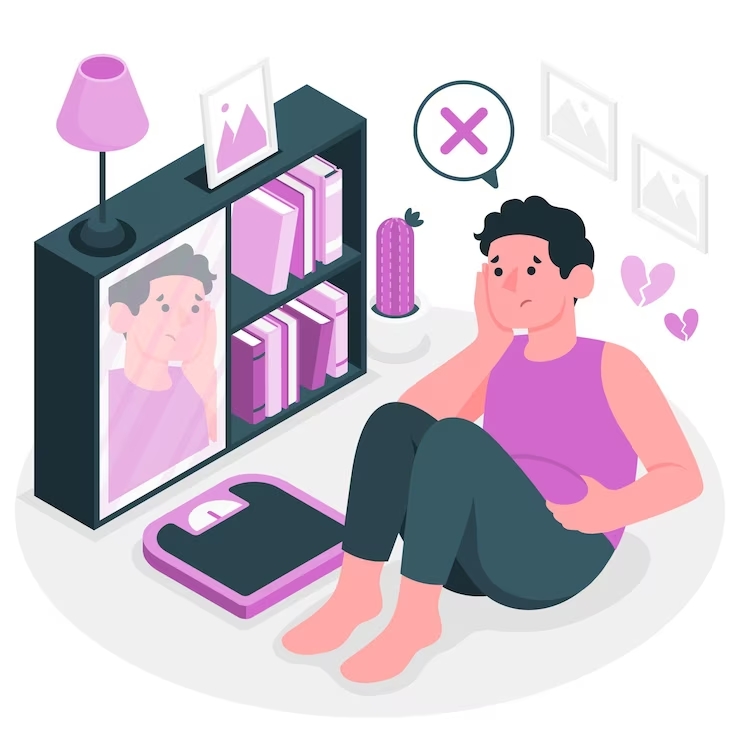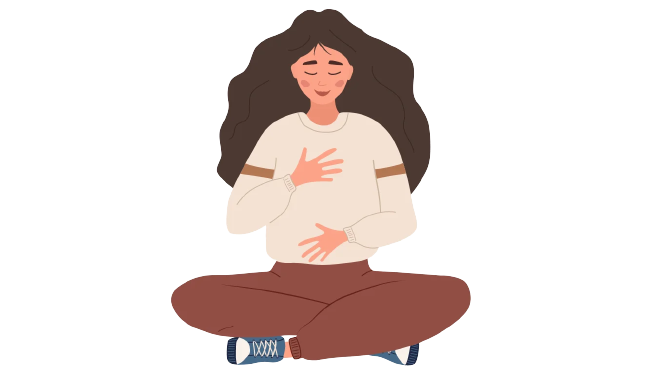
When you have low self esteem, you tend to question your ability most of the time. Most people around seem to be doing better than you, and you don’t see enough competence in yourself.
The tough part about having low self esteem is that you tend to go on for several years in life believing within that you are not good enough. You feel inhibited in some situations. For some of you, this inhibition spills over to several situations in life, making life seem like a never ending struggle.
However, there is one truth about self esteem that you need to consciously recognize-
Your self-esteem is ‘who you think you are’. It is not ‘who you are’.
Self Esteem: A Mental Concept

Don’t you know of people who are logically doing well for themselves, for example – have a likeable job, and are reasonably well settled in life, but still think poorly of themselves?
And then, don’t you also know of people who come across as being confident and comfortable with themselves?
You have probably met both kinds of people not once but several times! This is indication enough that your self esteem is your belief about yourself; it’s not necessarily who you truly are.
At times, beliefs and thoughts are far from accurate. This is because they are affected by memories, experiences and your expectations out of yourself and others. Many a time, there are errors in the way the mind thinks. For now, let’s address these errors as ‘biases’.
Those of us who think poorly of ourselves are more prone to certain biases of thought. These biases are not necessarily intentional or deliberate errors. In fact, most of the time you wouldn’t be aware that a bias is at play while you think! At the same time, it is very important to be aware of these biases; since they are an important reason why you continue to think poorly of yourself.
Two Biases Of Thought That Worsen Low Self Esteem
1. Seeing Communication As Negative When It Is Actually Neutral
An employee prepares a work assignment with a lot of effort. When it’s finally ready, he shows it to his boss. His boss goes though the assignment, nods and directs him to the next task on hand.
A person with low self-esteem would think – ‘Oh, he barely nodded. He didn’t say anything more. He probably didn’t like it.’
Well, here is a bias at play. The boss nodding at the assignment was not a negative sign. It was a neutral sign. In other words, it is not enough to conclude that he ‘disliked’ or disapproved of the assignment. Pointing out errors in important areas is a stronger indication that the assignment was not made well enough. The boss’ response was a neutral one – neither positive nor negative.
Let me give you another example. A person is making portions out of her food when her fork accidentally slips, and her food spills. Her neighbor helps in cleaning up and the group continues to eat.
A person with low self-esteem would think – “oh, see they’re not saying anything but I’m sure they’re wondering about how I couldn’t manage such a small thing!!”
Can you see how a bias is at play? Nobody in the group reacted to the fork slipping. Probably, it was the most normal occurrence for them. However, the mind ‘reads more’ into it and concludes that they are internally sneering. Once again, communication is interpreted as more negative than it actually is.
2. Seeing Success Or Failure At Small Tasks As Indicating Your Overall Ability
I’m using the restaurant example to explain this one. In the example, one bias was to do with what the others might think. The other bias is to do with the person’s own conclusion that she is not able to manage. Dropping one fork and some food in no way indicates her capacity as a person. Yet, she might consider herself to be ‘stupid’ and ‘silly’ because she ‘couldn’t manage even this’.
In psychological terminology, we call this ‘magnification’. One instance is magnified to mean a lot more than it can possibly mean. You might end up criticizing yourself for little things that go wrong as though something major has gone wrong. As a result, your self esteem suffers. If you feel under-confident, it is very important for you to be aware of this particular bias, since you might think this way a lot of times.
Now that you are aware of what these biases are, start out by observing your thoughts. Lots of resources are available to help you be more aware of and observe your thoughts. When you observe yourself making any of these biases, pause and take notice. Be aware that it is a bias, or a natural error in thought… and not reality.
You are much more than what you think you are. Spread your wings little by little. Even if you falter, you will learn and grow 🙂

Are you suffering from low self-esteem?
Counseling can be a great tool for you to manage your negative thoughts and lead a happy and confident life.
We are here for you.
Frequently Asked Questions
Low self-esteem can either be short-term (which arises due to certain changes or shifts in your life,) or long-term (which is deeper and more chronic.) However, fortunately, self-esteem can be managed and worked on by yourself, and with the support of a mental health professional.
Having a low self-esteem can often impair your ability to value and appreciate your efforts and work. It could lead to imposter syndrome, and you may undermine your work, which can impact the quality of work you put out. This can thereby impact your professional life.
In your personal life, having a low self-esteem may make you push away or isolate from dear ones, causing strained relationships and personal life.
Low self-esteem can occur due to a multitude of reasons- bad childhood experiences, bullying, neglectful or critical parenting, and other factors such as negative self-talk, sudden life changes. Sometimes, certain personality types or traits such as perfectionism can cause low self-esteem.
About the Author
This article was written by Malini Krishnan, Psychologist at Inner Space. This post was consulted & approved by professional therapists practicing online therapy and counseling.
Ask a Therapist
If you are interested to know more about self-esteem and other mental health topics, ‘Ask A Therapist’ is a platform for you to ask your questions related to Mental Health, Mindfulness & Emotional Well-Being to our team of qualified Therapists.




